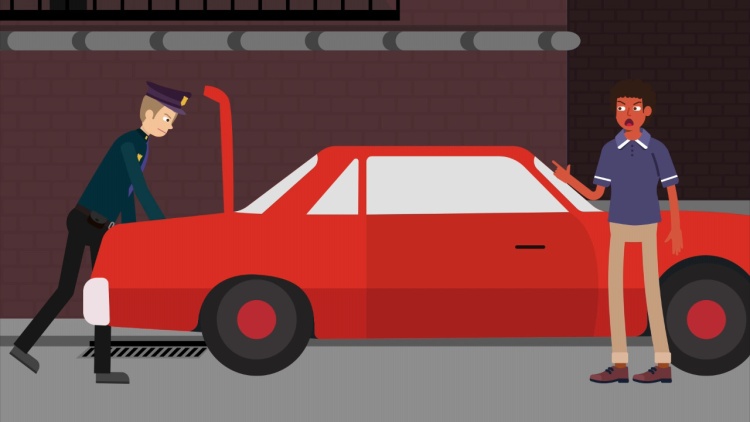Terry Stop
Definition
From Terry v. Ohio, 392 U.S. 1 (1968), a brief seizure by law enforcement that falls short of a traditional arrest. A Terry stop, or investigatory stop, is lawful if officers have a reasonable suspicion that a person is engaged in criminal activity. The stop must be limited to the amount of time reasonably necessary for officers to confirm or dispel the reasonable suspicion, and officers must use the least intrusive means to confirm or dispel the suspicion. The investigatory stop is often followed by an investigatory frisk, which is a brief patdown of the person's outer clothing in search of a deadly weapon, if the circumstances would justify a reasonable person to suspect that the person poses a danger to the officers or other people. The frisk must be strictly confined to what is necessary to discover a deadly weapon; officers may not search for contraband or other evidence of a crime.




